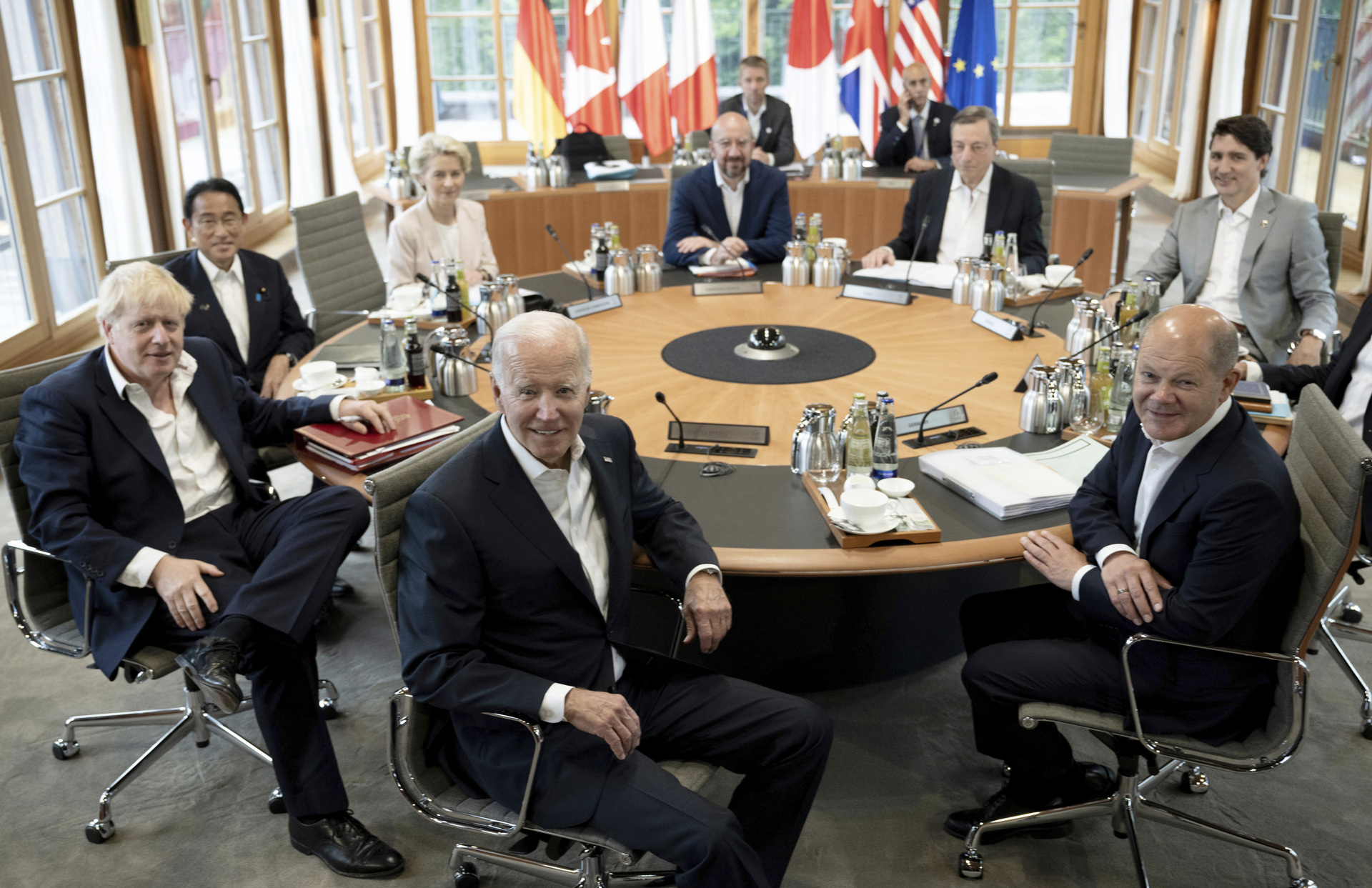The Kremlin considers the idea of the G7 to set a price ceiling for Russian gas a subject of negotiations with Gazprom.
This was announced on Tuesday, June 28, by the press secretary of the President of Russia Dmitry Peskov.
“Depends on the direction, depends on the decision that Gazprom will make.
After all, probably they (G7 countries. -
RT
) will raise the question of changing the terms of existing contracts, changing prices.
To what extent it is legally possible, and so on.
Therefore, there are many (questions. -
RT
),” said a Kremlin spokesman.
On Tuesday it became known that the "Big Seven" (USA, UK, Germany, France, Italy, Canada and Japan) is exploring the possibility of setting cap prices for gas from Russia.
The corresponding initiative, for example, has already been supported in Paris and Rome, as stated by French President Emmanuel Macron at a press conference following the G7 summit.
“I am very supportive of this.
We need to cooperate on this issue as well.
Italian Prime Minister Mario Draghi also supports this, that is, there are several of us.
We will continue to interact on this topic in the coming weeks, ”RIA Novosti quoted Macron as saying.
At the same time, the G7 countries are also discussing the topic of limiting prices for Russian oil, writes Bloomberg, citing sources.
According to the agency, such a mechanism is proposed to be implemented through the introduction of the marginal cost of transportation and insurance of energy resources from Russia.
AP
© Brendan Smialowski/Pool
Earlier, US Treasury Secretary Janet Yellen announced the plans of the West to impose price restrictions on Russian energy resources.
According to her, through its actions, Washington, together with partners and allies around the world, wants to reduce Moscow's profits from the sale of hydrocarbons.
“We are talking about the introduction of a price cap, or a price exemption, that would expand and strengthen the recently introduced and planned restrictions on energy trade by Europe, the US, the UK and other countries, which will lead to a decrease in the price of Russian oil and a decrease in Putin’s income, at the same time allowing you to increase the supply of oil to the world market, ”said the head of the US Treasury.
According to Yellen, the introduction of a price cap will "prevent side effects on the global economy."
In particular, the initiative should help low-income and developing countries, which are faced with a sharp rise in the cost of energy and food.
However, analysts interviewed by RT are skeptical of the West's plans for Russian energy resources.
According to Igor Galaktionov, an expert on the stock market at BCS Mir Investments, at the moment, the G7 proposals on marginal prices for oil and gas from the Russian Federation raise more questions than they give answers.
“Price caps on oil, unless all of the world's largest consumers join in, will only speed up the redirection of supplies to priority markets.
Similar measures for gas without the consent of Russia may cause a decrease in export flows, which will further raise prices for this type of fuel in the EU, ”the source suggested.
A similar point of view is shared by the chief economist of the TeleTrade information and analytical center Mark Goykhman.
According to him, in theory one can imagine a situation in which a number of countries will offer Moscow to supply them with hydrocarbons at low prices.
As a result, monopoly conditions in the energy market will be received not by the seller, but by the buyer.
Meanwhile, in practice, in a competitive economy, it will be difficult to implement such a plan, the expert believes.
“There is a direct, physical need, primarily in Europe, for certain volumes of energy resources, which are still difficult to replace with supplies outside of Russia.
In addition to the G7, there are other consumer countries.
Naturally, when prices are artificially limited in one market segment, it becomes more profitable to move supplies to other directions,” the analyst explained.
"The effect will be the opposite"
It should be noted that against the backdrop of Western sanctions, Russia has already begun to reorient its oil exports from West to East.
As a result, according to the results of May, Moscow came out on top among the suppliers of energy raw materials to China, ahead of Saudi Arabia.
Meanwhile, in Europe and the US due to fuel shortages, there is a sharp rise in gasoline prices, which has become one of the reasons for record inflation.
According to Igor Galaktionov, the consent of such large consumers as China and India is necessary for the successful establishment of an oil price ceiling.
At the same time, the parties are unlikely to join this G7 decision for political reasons, the expert is sure.
RIA News
© Svetlana Mayorova
According to Mark Goykhman, the reorientation of gas supplies to the East still remains difficult due to the insufficiently developed infrastructure for this.
At the same time, if Europe offers Russia to sell raw materials at unacceptably low prices and producers cannot cover their own costs, it will become impossible in principle to export fuel, and supplies to the EU will stop, the analyst believes.
“Attempts to limit the income of Gazprom and Russia as a whole can result in a negative for the economies of the G7 countries themselves.
If the supplier refuses to sell at low prices, there will be an even greater shortage of raw materials in the market, which will further increase prices.
As a result, suppliers from other countries will begin to focus on these increased prices, and gas will become more expensive for consumers, not cheaper.
That is, the effect will be the opposite of what was intended, ”the expert explained.

